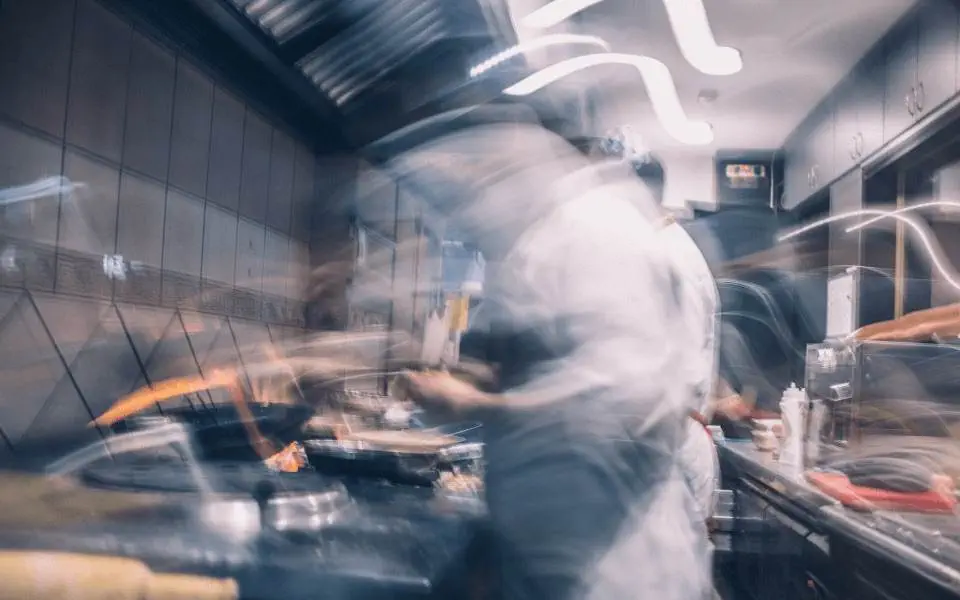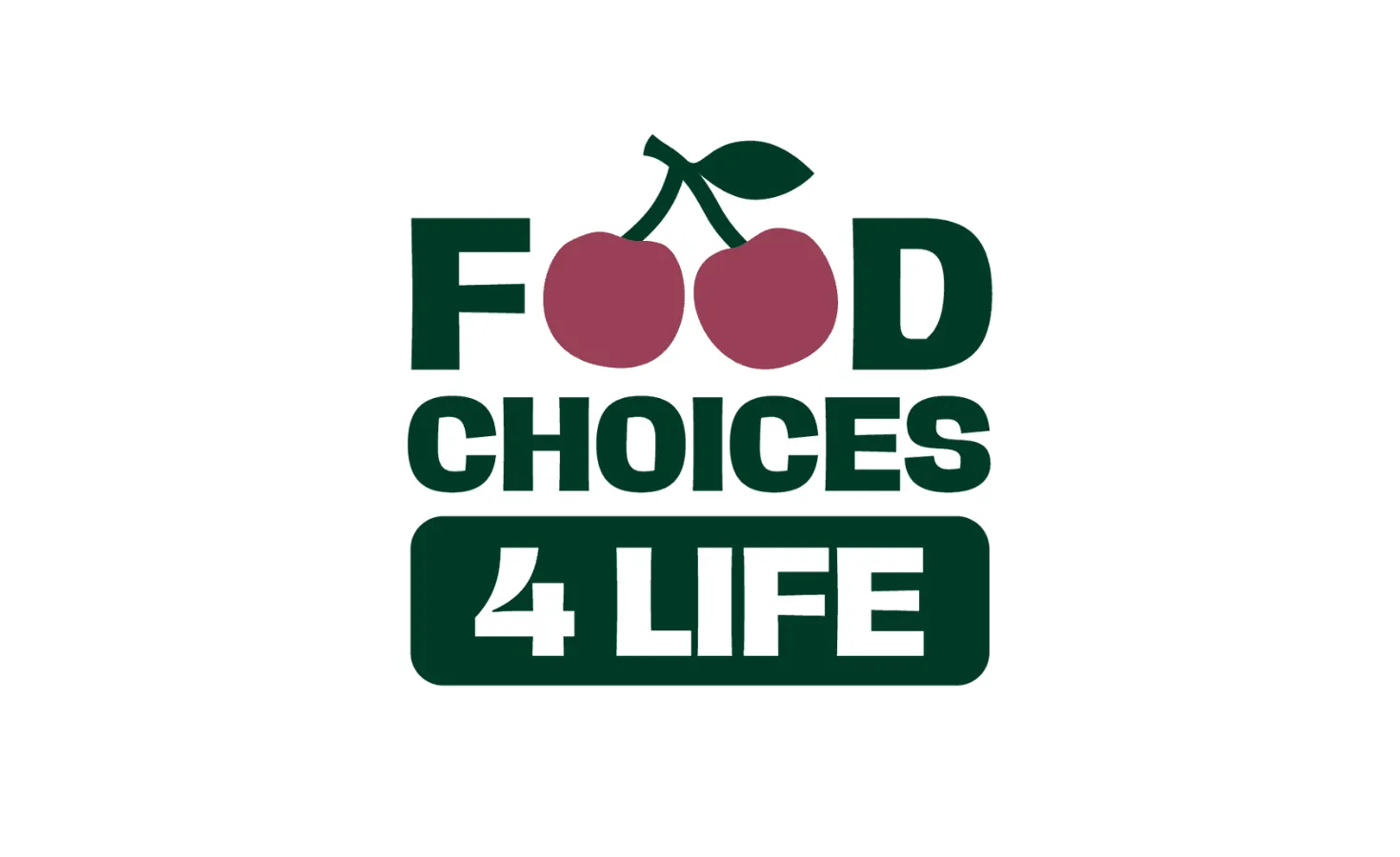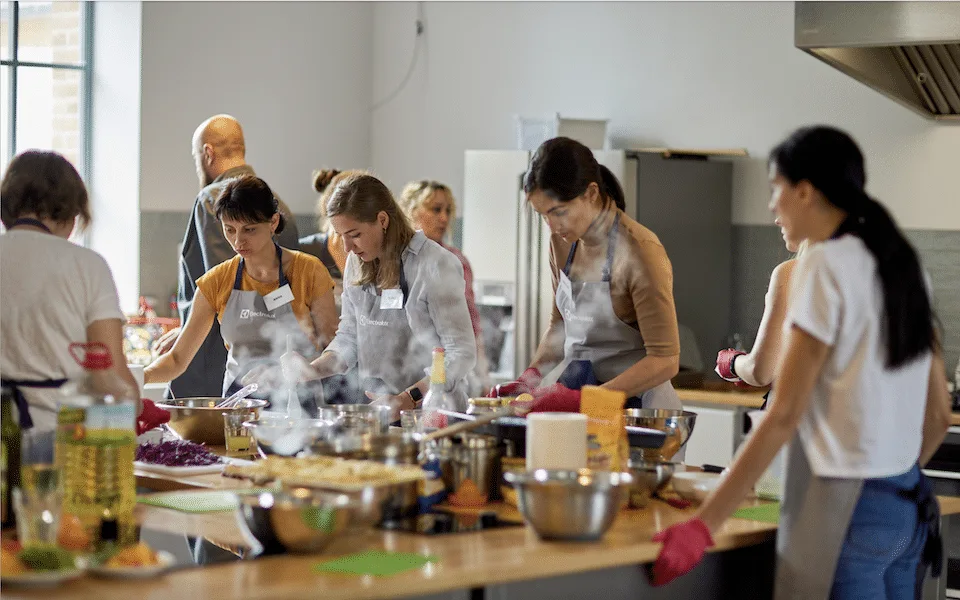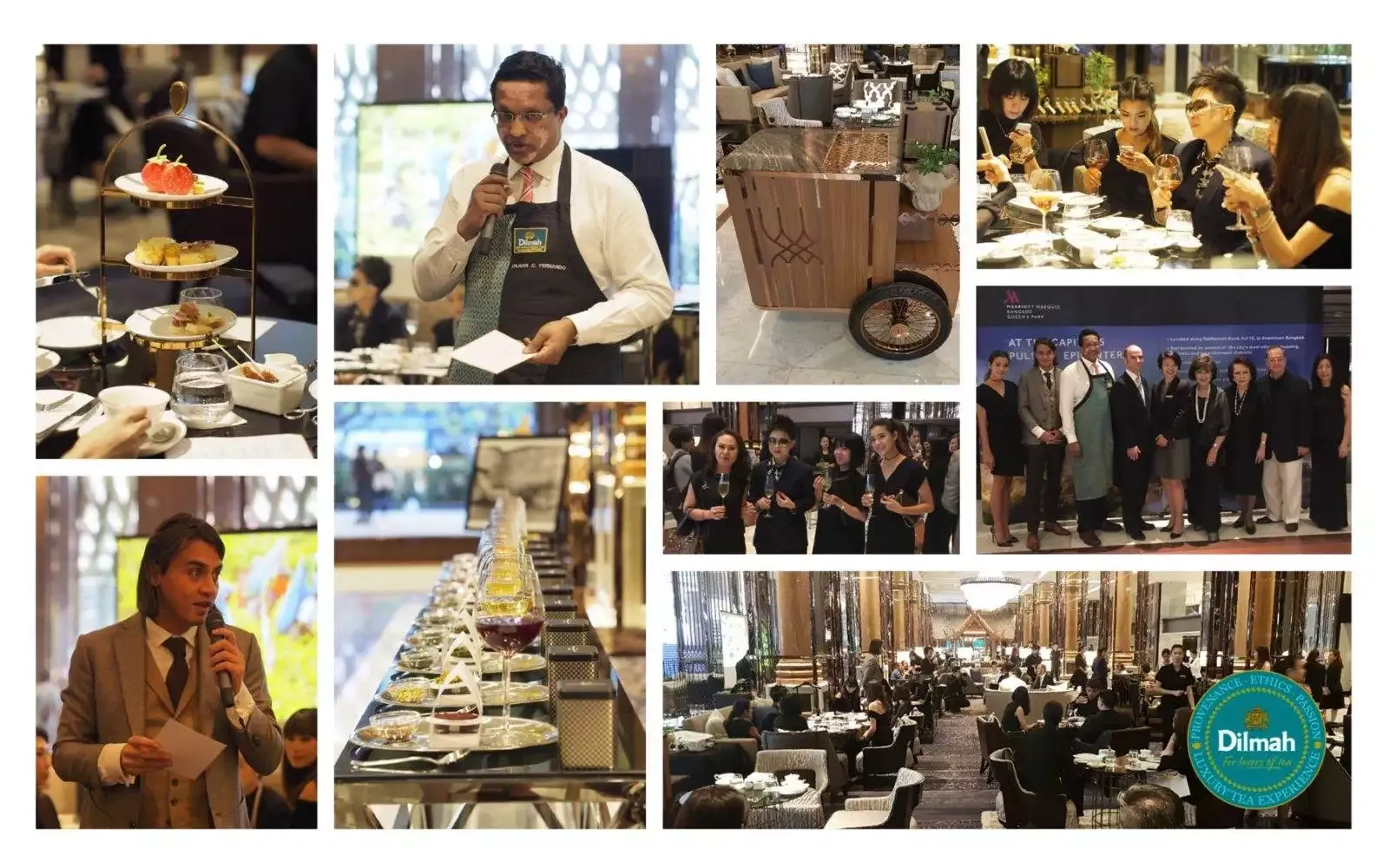As we mark Mental Health Awareness Month, the culinary world is still in the weeds.
The once-glorified kitchen culture of hustle and hard living has started to give way to a more sustainable ethos, one that recognizes that the future of the industry depends not just on innovation and skill, but on the health and happiness of those behind the pass.
But while awareness of the importance of mental health and wellness has increased, the culinary industry still faces unique challenges requiring attention and change in workplace culture. So where do we go from here?
The Mental Health Crisis in Hospitality: A Global Snapshot
The statistics paint a sobering picture. A 2023 survey by Cozymeal found that 44% of chefs who responded said that working at a restaurant had a negative impact on their mental health. 70% of chefs surveyed that they’d experienced anxiety as a result of working in a restaurant, and 65% said that toxic restaurant culture has made them feel isolated from the outside world.
Last year in 2024, over 76% of hospitality workers reported experiencing mental health issues during their careers, a significant rise from 56% in 2018. Factors such as long hours, high-pressure environments, the cost-of-living crisis, and the lingering effects of the COVID-19 pandemic have exacerbated these challenges. A recent study in Australia found that one in five chefs surveyed expressed a strong likelihood of leaving their jobs within the next year due to mental distress. Several studies have shown that 40% of turnover within the hospitality sector can be linked to mental health issues.
Despite a growing awareness to these issues, stigma remains a barrier. A 2024 UK survey revealed that 45% of employees feel uncomfortable discussing mental health concerns with their managers, fearing negative repercussions.
These numbers are still surprising, despite seeing the picture they paint on screen in most depictions of restaurant environments in movies and TV. While The Bear has made ‘Yes, Chef,’ viral, the data shows that much more must be done.
Prevention is Better Than Cure
That is what Michelin-starred Chef Emmanuel Stroobant’s wife told him. Fifteen years ago, Stroobant found himself burnt out, dependent on alcohol, and starting to spiral. Overseeing twelve restaurants and 350 staff members, the pressure caught up with him, but he managed to recognize the grip of alcoholism amidst the demanding pressures. It was this moment of awakening that shifted his view on mental health, a pivot towards both personal recovery and advocating within the industry.
Now, Emmanuel advocates for a culture that values rest, reflection, and mental resilience as much as culinary excellence. He realized that taking care of oneself is more than an act of self-preservation; it’s a responsibility we have towards those around us.
“The word chef in French doesn’t mean cook. It means leader. It means somebody who is going to take and lead a team to execute something to the best potential perfection. And as a leader, it’s very important that you get your sh*t together, because if you lose it, well, your probably not going to be a very good leader or a very long leader,” says Stroobant. “It will have an impact on pretty much all or anything you’re going to be doing as a chef or as a man or a woman,” he adds. “[Prevention] is not an act of selfishness. When you take care of yourself, you actually do take care of the rest of the people around you.”
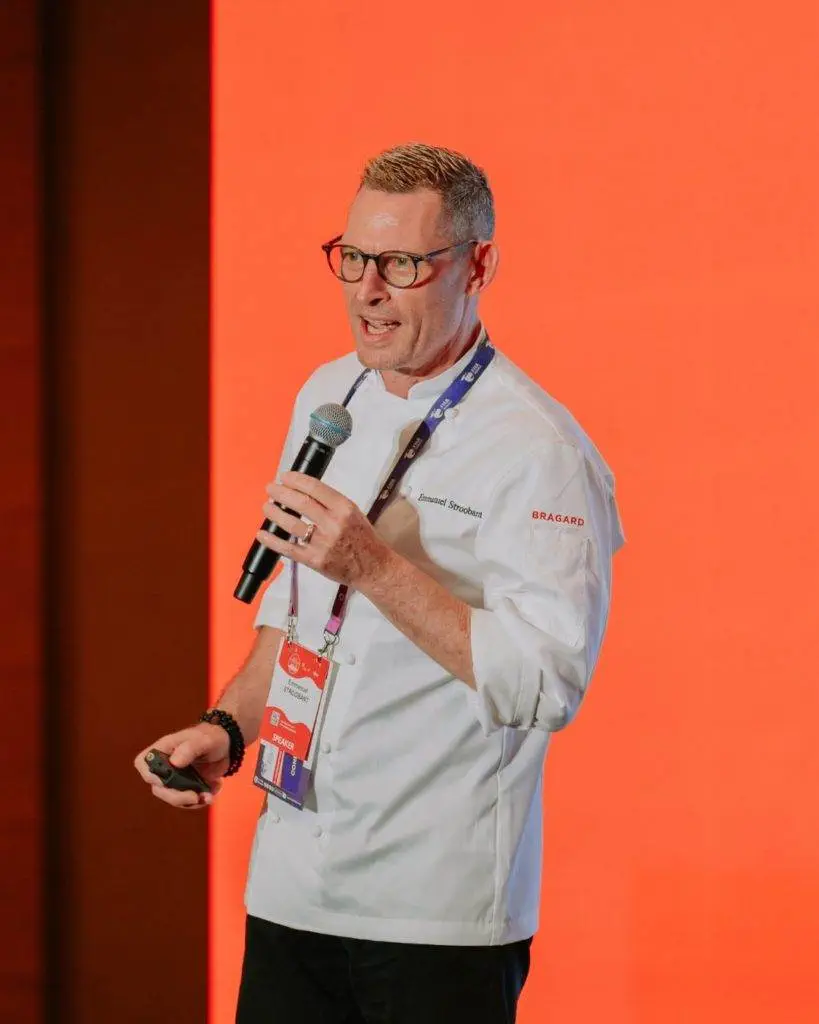
Emmanuel has also witnessed a generational shift in attitudes towards work-life balance. The millennials stepping into the industry view long hours and high stress differently than their predecessors. They may have been inspired to enter the industry by legends like Anthony Bourdain, who brought the underbelly of kitchens to the fore for so many (“it’s a life that grounds you down,” he said), but they have also had to grieve his loss and come to grips with his tragic suicide. Emmanuel stresses the importance of embracing the younger generation of chefs, bringing fresh perspectives, challenging the norms of rigorous hours and high stress. He sees their leadership as essential for the industry’s evolution.
He advocates for training teams in managing stress, open communication and creating supportive environments, to ensure better resources that go beyond understanding the issue to acting on it. Emmanuel’s story shows how essential this is, and that mental health isn’t contrary to strength; instead, it’s integral to sustainable success, both in and out of the kitchen.
Starting a Conversation
Formerly in the food supplier industry, Kris Hall witnessed firsthand the high-pressure environment that many experience. More importantly, he recognized the silent battles with depression that individuals faced within the industry.
In 2019, Hall founded The Burnt Chef Project. His personal battle with depression laid the foundation for this initiative, aimed at raising awareness and providing support for mental health issues in hospitality. Initially conceived as a photography campaign, the project quickly gained momentum, amplifying critical conversations about mental well-being across the globe.
Kris’ nonprofit organization is dedicated to raising awareness and providing support for mental health issues in the hospitality sector, highlighting the need to build a supportive community that understands and acts to improve mental health at work.
“Our mission to eradicate stigma and improve the working environment has been critical to our success,” says Kris. “I wanted to try and make a meaningful impact and a change to the industry that I fell in love with.”
One of The Burnt Chef Project’s remarkable accomplishments is its evolving network of volunteers across 184 countries. Their 2023/24 Social Impact Report highlights a marked increase in demand for mental health support services in hospitality, with their 24/7 text support service usage tripling in recent years.
These passionate individuals play a pivotal role in educating and supporting hospitality workers struggling with mental health issues. Their work is one example of how offering tools, educational resources, and therapeutic services can make an impact, and the need to reinforce a collective commitment to a culture shift.
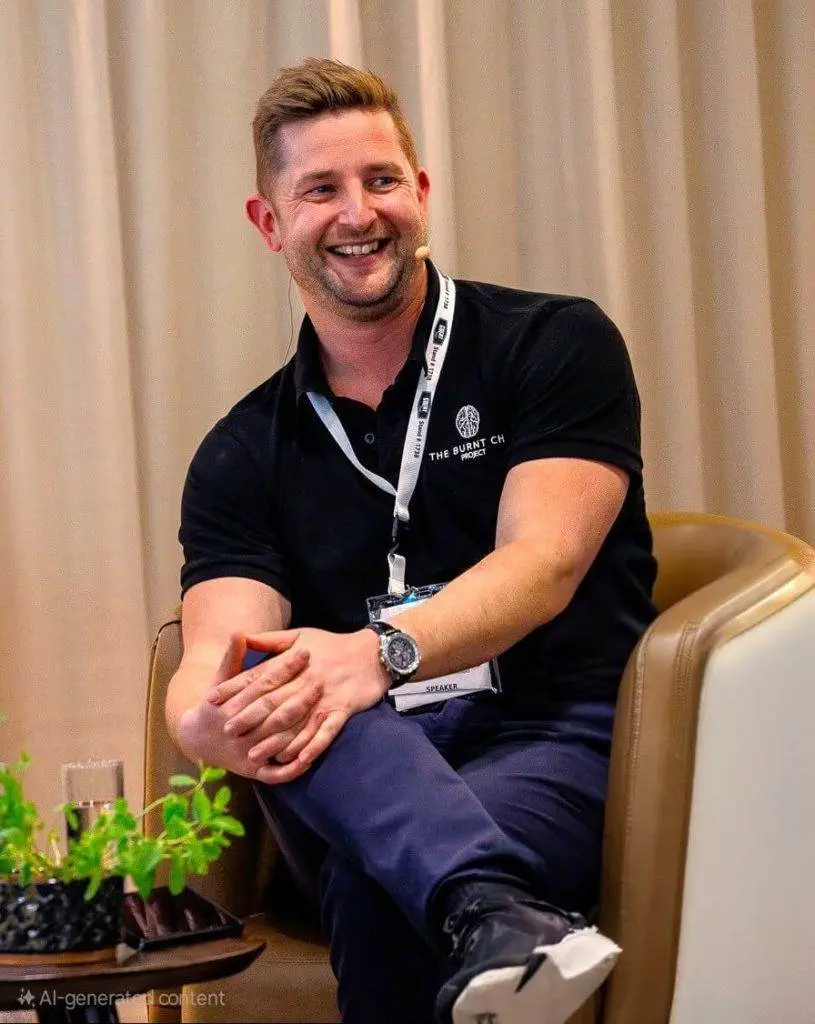

Shifting the Narrative: From Hustle to Health
Over the past few years, mental health has transitioned from a neglected issue to a trendy topic across various sectors. While we are on a better path towards understanding, the data shows we have a long way to go in prioritizing mental health and wellbeing in the workplace.
Advocates like Emmanuel Stroobant and organizations like The Burnt Chef Project are playing a pivotal role in changing the narrative around mental health services and calling for action. By empowering chefs with the right tools, education, resources, and a platform for open conversation, they are creating a culture where mental health is prioritized.
There is also a business case for prioritising and investing in mental health. For starters, companies that implement mental health training for managers report a 30% reduction in mental health-related absences. High turnover rates impact the bottom line, and fostering supportive, healthy work environments can reduce costs, improve retention, and drive long-term success.
The process towards destigmatizing mental health, changing entrenched workplace cultures, and creating supportive environments will require concerted efforts at every level. Hospitality leaders must actively engage with their teams, fostering open dialogues and prioritizing work-life balance. Addressing these issues at both grassroots and executive levels will lead to healthier, more resilient professionals, and better lives at work and at home.
Next Steps for Chefs: Cultivating Wellbeing in the Workplace
For Every Chef:
- Prevention over cure: Prioritize self-care, and don’t neglect your nutrition.
- Set boundaries: Communication is crucial; knowing when to say no helps maintain mental health.
- Open dialogue: Foster conversations about mental health with peers and mentors.
- Box breathing technique: Adopted from elite military training, ‘box breathing’ offers a method to manage stress seamlessly, promoting calmness in high-pressure situations.
- Seek support: Utilise resources like CHOW and The Burnt Chef Project.
For Kitchen Leaders:
- Implement team training & support: Provide mental health training for management to identify and address issues proactively. Equip teams with the tools to manage stress, and encourage open communication.
- Foster supportive environments: Establish policies that promote work-life balance and psychological safety, as well as adequate time for breaks, sick leave, and health services.
- Encourage feedback: Regularly invite input from staff to identify areas for improvement.
For Organizations:
- Invest in resources: Allocate funds for mental health programs and support services.
- Promote awareness: Engage in campaigns that destigmatize mental health discussions.
- Monitor progress: Regularly assess the effectiveness of wellbeing initiatives and adjust as needed.
Podcasts & Webcasts: Deep Dive into Mental Health & Wellbeing
From Burnout to Breakthrough: Addressing Industry Wellbeing with The Burnt Chef Project CEO Kris Hall
On this episode, Ragnar speaks with Kris Hall, CEO and founder of The Burnt Chef Project. Having faced his own mental health challenges throughout his career, Kris launched The Burnt Chef Project in 2019 to tackle the stigma around mental health in the industry. What began as a black-and-white photography campaign offering raw glimpses into the lives of hospitality professionals has since grown into a global movement spanning over 180 countries.
From Burnout to Balance: A Chef’s Guide to Mental Wellness with Emmanuel Stroobant,Chef-Owner of the two-Michelin-starred Saint Pierre
In his session from Worldchefs Congress 2024, Chef Emmanuel explores the multifaceted impact of burnout on performance, customer satisfaction, and personal life. Burnout is more than just fatigue; it’s a pervasive challenge affecting both leaders and their teams. Through this conversation, Emmanuel emphasizes the necessity of balancing professional demands with personal well-being.
Prioritizing Mental Health – Wellness Tools for Chefs and Hospitality Workers with Jasmin Parks-Papadopoulos
On this episode, Ragnar speaks with Jasmin Parks-Papadopoulos, Chief Growth Officer at CHOW (Culinary Hospitality Outreach Wellness) and a former chef turned certified life coach. They discuss the unique challenges faced by hospitality workers, community support, and trauma-informed tools—all aimed at promoting a sustainable and healthier work environment. Learn how CHOW is transforming the mental wellness conversation in hospitality.
Be Kind to Hospitality with Gordon McIntyre, Founder of Hospitality Health
On this episode of World on a Plate, we break through the taboo to talk about an important mission: providing support to individuals within the hospitality industry in areas of mental health, addiction, and well-being. Hospitality Health is a Scottish charity, formed in August of 2018 to support staff in the amazing world of hospitality. It is clear that for several years the industry has become more stressful for an extremely hard working management and staff. The trustees decided it was time to act and help those who are in need of support, by providing wellbeing advice and signposting organizations that can help.
Stress in the Kitchen with Wonda Grobbelaar, Training Expert and Researcher
On this episode, Ragnar speaks with Wonda Grobbelaar – chef, soft skills training expert, and Ph.D. candidate researching stress in the kitchen. She shares her findings on mental health and automation technology in back-of-house, contributing factors to stress, and recommendations for future-proofing the industry through training and education in emotional intelligence.
More Resources
Chefs, Commercial Kitchens, and Stress: Could Socio-Demographic Factors such as Personality, Age, and Gender Influence the Stress Level of a Chef?
This study explores the role of socio-demographic factors such as age, gender, and personality on the stress levels of a chef and what could be done to improve the stress levels that are causing many health problems among those around the globe.
CHOW Temperature Take — Downloadable PDF
Download this PDF to use the CHOW Temperature Take in your business, community or organization.
Food & Wine: Why Your Favorite Server Quit — the Real Cost of Hospitality Burnout
Restaurants are back, but the people who work there may not be OK. Here’s what you need to know.
If you or someone you know is having suicidal thoughts, help is available. In the US, call the National Suicide Prevention Lifeline at 1-800-273-8255 or text TalkWithUs to 66746. For international lifelines, visit this list.

